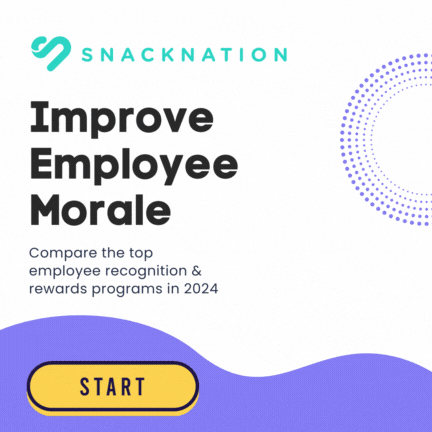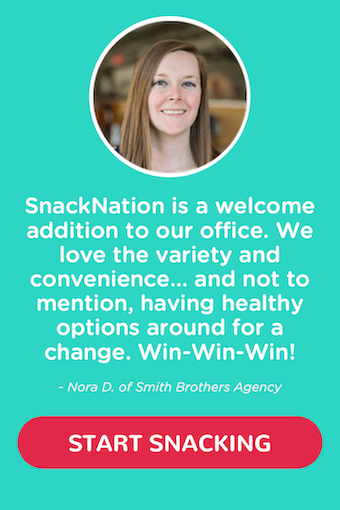It’s decided. You’re moving on from your current position.
No matter your circumstance for leaving, whether you‘ve accepted a new job, you’re burned out with your current job, or you’re retiring, there is a hurdle you need to jump — you need to compose a professional resignation letter, sometimes referred to as your formal notice, or your two weeks notice.
There’s no need to fret over this step because you’ve come to the right place — and if you happen to be a woman searching for a new opportunity, check out The Assist, a free email newsletter that gives career advice and changes the narrative about how women support each other to achieve success.
“Every new beginning comes from some other beginning’s end.” – Semisonic Click To TweetWhether you’re leaving your job for a new opportunity or deciding to change career paths, thoughtfully crafting a resignation letter is an important step in professionally and respectfully leaving your current role.
Page Contents (Click To Jump)
Is it time to resign?
First, a resignation letter does not replace telling your employer your news in person, or if you work remotely, on video.
But when you submit a resignation letter, you’re sharing an official document that informs the HR department to put an end to your file. It also ensures that you leave in good standing with your company because you’ve provided clear documentation of your decision.
Resignation letters are submitted to employers daily, with reasons varying all over the map from low morale and motivation to feeling micromanaged. Perhaps it was a lack of leadership or recognition that broke the camel’s back — the fact is, just about any reason for resigning is an appropriate reason to submit one.
If you’re having doubts about whether you should write one, this 2022 study by ConsumerAffairs puts things in perspective.
According to the data, here are the top five reasons people are quitting jobs and affecting retention:
- Seeking higher pay (47%)
- Seeking better benefits (42%),
- Insufficient raises (41%)
- Needs not met by pay (40%
- Pay inequality (39%)
The above gives you a good idea of what makes an employee happy and engaged, but you’ll also find the common catalyst in why they quit— a lack of employee appreciation.
⭐ Pro-Tip: Check out how Caroo can help you keep morale high and turnover low with carefully curated and personalized gifts.
So, what is a resignation letter?
A resignation letter documents the facts for your company’s human resources department, tells the recipients that you are beginning your transition period, and informs them of your official notice period so they can go about filling your position.
Speaking of your official notice period, it’s best practice to submit your resignation letter at least two weeks before your end date. Plus, that will give your colleagues time to plan your going away (or retirement) party.
🛑 Pro-Tip from The Assist: When drafting your resignation letter, maintain a cordial, professional tone that focuses on appreciation for opportunities gained rather than negativity to preserve your reputation and network.
You can attach your letter as a document in an email or it can be the email body.
If you’d prefer to hand over your letter in person, be sure to keep documentation of your submission. (If this is the route you prefer to go, bolster your confidence and convey your gratitude to your employer by also getting them a goodbye gift!)
With a good resignation letter, your goal is to leave on a positive note. To do that, you will need to strike the right tone of sincerity and professionalism.
The following contains helpful information on formatting your resignation letter as well as resignation letter samples and free resignation letter templates.
What You Should Include in Your Resignation Letter
- ➡️ A clear subject line that leaves no room for confusion, ie “[your name] Resignation”
- ➡️ Your contact information
- ➡️ Your name
- ➡️ Your employer’s or supervisor’s name
- ➡️ Your last day of work
- ➡️ Your position in the company
- ➡️ A statement that explains that you’re leaving
- ➡️ Reason(s) you’re leaving
7 Resignation Letter Examples
Below are 7 examples of resignation letters covering different situations to help ensure a smooth transition.
1. Two-Week Notice Resignation Letter
✅ When to use this resignation letter:
You can leave your current position within two weeks and you’re willing to offer your time and energy to help your team through the transition process.
💡 Two-Week Notice Resignation Letter Template:
Dear [employer name],
I regret to inform you that I will be leaving [company name], effective two weeks from today on [your end date].
I appreciate the time I have spent here as a [your role]. I have learned so much from [co-workers, experiences, etc], and I’ll cherish the invaluable experience I gained through [significant opportunities].
I’ll do everything possible to complete my duties during my last two weeks. I’m also happy to help new train team members. Please let me know what I can do to assist in the transition.
Sincerely,
Your Signature (if using a hard copy letter)
Your typed name
🛑 Pro-Tip from The Assist: Clearly state your final work date in your resignation letter and offer to aid the transition process to ensure clarity around your departure and demonstrate your commitment to smooth onboarding of your replacement.
2. Retirement Resignation Letter
✅ When to use this resignation letter:
You are prepared and poised to officially retire within the next two weeks. For more help with expressing your gratitude or expressing yourself best within your retirement letter, check out this article.
💡 Retirement Resignation Letter Template:
Dear [employer name],
I am writing to notify you of my upcoming retirement from [your role]. My final day with [company name] will be [date].
I am deeply grateful for the opportunity to spend the last [number of years] working with [company name]. I learned a great deal from [employer, colleagues, or opportunities] and feel that my [a noteworthy skill] grew considerably during my time as [role] It was a pleasure especially to be a part of [a significant opportunity].
Please let me know how I can help make the transition following my retirement as smooth as possible. I would be happy to assist in hiring or training my replacement. Optional: I will also be available to assist as a consultant during my retirement, should you have any opportunities available.
Thank you for the opportunity to work at [company name]. I wish you all the best in the years to come!
Sincerely,
Your Signature (if using a hard copy letter)
Your typed name
Listen, if you‘re retiring, then let‘s be real. This is your time. Drop some hints about retirement gifts at the water cooler (just not in your resignation letter!).
3. Short & Simple Resignation Letter
✅ When to use this resignation letter:
Generally speaking, resignation letters don’t have to offer much information about why or where you’re going. If you prefer to avoid thanking them or adding much detail, simply include your company’s name, the fact that you are leaving, and your last day of work. That being said, if you’re holding back what you really want to say, use this guide to find a workplace that recognizes you for the amazing employee you are.
💡 Short & Simple Resignation Letter Template:
Dear [employer],
Please accept this letter as notification that I am leaving my position as [your position] with [company name] on [end date].
If I can be of assistance during this transition, please let me know.
Sincerely,
Your Signature (if using a hard copy letter)
Your typed name
4. Personal Reasons Resignation Letter
✅ When to use this resignation letter:
Perhaps you are leaving because of family circumstances or a lifestyle change. As you transition, it’s never a bad thing to make your employer aware that you may need some additional support, or at least, understanding. While you should not go into detail about your personal life, conveying the truth is best.
💡 Personal Reasons Resignation Letter Template:
Dear [employer name],
I regret to inform you that I will be leaving my role as [your role] at [company name] on [end date]. Due to personal reasons that prevent me from fulfilling the responsibilities of this role, I feel it is in my best interest that I resign.
I appreciate the time I have spent here [optional: elaborate on your role]. I have learned so much from [employer, colleagues, and or relevant experiences], and will cherish the invaluable experience I gained through [significant opportunity].
I’ll do everything possible to wrap up my duties and train team members before my last day. Please let me know what I can do to assist in the transition.
Sincerely,
Your Signature (if using a hard copy letter)
Your typed name
5. Formal Resignation Letter
✅ When to use this resignation letter:
A formal letter of resignation might contain the reasons why an employee is quitting, whereas a basic resignation letter succinctly provides only pertinent information, such as the hire date, position, department, and last day of work.
💡 Formal Resignation Letter Template:
Dear [employer’s name],
Please accept this letter as the formal notification of my resignation from my position [your role] with [company name], effective two weeks from today on [end date].
I have accepted a role as [new role] at[new company]. I strongly believe [your reason for accepting this new role].
I have learned so much from [employer, co-workers, or opportunities] about this industry, and will cherish the invaluable experience I gained through [relevant opportunity].
I will do everything possible to wrap up my duties and train team members over the next two weeks. Please let me know what I can do to assist in the transition.
Sincerely,
Your Signature (if using a hard copy letter)
Your typed name
6. Career Change Resignation Letter
 ✅ When to use this resignation letter:
✅ When to use this resignation letter:
This type of letter is ideal when transitioning from your current job to a completely different field. It is a formal notification to your employer, explaining that your career aspirations have shifted toward a new industry or profession. A well-crafted career change resignation letter should convey respect, positivity, and gratitude for the opportunities provided by your current role while clearly articulating your intention to pursue a different career path.
💡 Career Change Resignation Letter Template
Dear [Employer Name],
I am writing to formally announce my resignation from my position as [Your Position] at [Company Name], effective two weeks from today, [Last Working Day].
My time at [Company Name] has been a significant and rewarding part of my career. I deeply appreciate the opportunities to grow and the experiences I’ve had here.
Leaving was a tough decision, but I’ve chosen a new career path that aligns better with my long-term professional goals and personal interests. After careful deliberation, I’ve realized that this change is vital for my personal and professional development.
Rest assured, I am fully dedicated to facilitating a seamless transition. I will diligently accomplish any pending tasks and offer aid in training my successor or transferring my duties to a colleague, as needed. Moreover, I am wholeheartedly willing to provide support throughout this transitional phase to minimize potential disruptions.
I am proud of what we have accomplished together, and hope our paths will cross again in the future.
Sincerely,
[Your Name]
7. Further Education Resignation Letter
 ✅ When to use this resignation letter:
✅ When to use this resignation letter:
This resignation letter is appropriate when resigning from your current job to pursue further education, such as enrolling in graduate studies or specialized training programs. It provides a formal means of communicating your departure while emphasizing your commitment to academic or professional development goals.
The tone of the letter should be appreciative, expressing gratitude for the experiences and growth opportunities afforded by your current position.
💡 Further Education Resignation Letter
Dear [Employer Name],
I am writing to inform you of my decision to resign from my position as [Your Position] with [Company Name], effective [Last Working Day, typically two weeks from the date of the letter].
The decision to leave my role is not one I have taken lightly. The support and experiences I have gained here have shaped my career path positively. However, I have recently been presented with an opportunity to further my education in [Field of Study or Program Name]. After careful consideration, I have decided to pursue this new academic endeavor.
This step is an essential milestone in my career and personal development, as it aligns with my long-term professional goals. I am excited about this new chapter and its potential for my future career prospects.
I am writing to express my sincere gratitude for the opportunities for professional and personal development provided to me during my time at [Company Name].
Thank you again for the opportunity to be part of [Company Name]. I am eager to embark on this new educational journey and am optimistic about the future.
Sincerely,
[Your Name]
People Also Ask These Questions About Resignation Letter Examples & Templates
Q: How do you write a short resignation letter?
- A: First, you state your intention to resign from your current position. Second, you provide a brief explanation of your reasons for leaving. Finally, you express your gratitude for the opportunity to work at the company and wish your former colleagues all the best in the future.
Q: Who should I send my resignation letter to?
- A: You should send your resignation letter to your direct supervisor or manager. If you have a human resources department, you may also want to send them a copy of your resignation so they can start their recruiting process to fill your role as quickly as possible.
Q: When do I know I should leave my job?
- A: Only you can answer this question, as it is a very personal decision. However, there are some general signs that it may be time to move on, such as feeling unappreciated or undervalued at work, being regularly passed over for promotions or pay raises, or simply being unhappy with your current job.
Q: How do I write a polite resignation letter?
- A: You should always be polite and professional when resigning from a job, even if you are not particularly happy with your current situation. Begin by expressing your gratitude for the opportunity to work at the company. Then, state your intention to resign from your current position. Finally, provide a brief explanation of your reasons for leaving. If you’re struggling to write a courteous letter, try utilizing an AI paragraph rewriter tool such as HubSpot’s to adjust the tone of your writing.
Q: How do you tell your boss you want to leave the company?
- A: You should always express your intention to resign in a written letter addressed to your direct supervisor or manager. If you have a human resources department, you may also want to send them a copy of your resignation. When possible, it is best to deliver the news in person as well.











 ✅ When to use this resignation letter:
✅ When to use this resignation letter:





